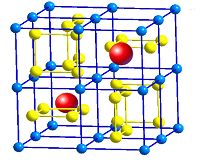Commission submits plan for keeping Europe at the forefront of nanotechnology
The European Commission has proposed an action plan for nanosciences and nanotechnologies (N&N), which makes clear what the Commission and the Member States must do in order to keep Europe at the forefront in this field. Points for action address areas such as: investment in N&N; the strengthening of infrastructure; the generation of interdisciplinary experts; commercialisation; dialogue with society; addressing health, safety and environmental concerns; and international cooperation. 'Europe needs to invest in knowledge to maintain its competitive edge in the global economy,' said EU Science and Research Commissioner Janez Potocnik. 'Nanotechnology is a key area where Europe is in the lead, and we must ensure that we stay there. Nanotechnology has enormous potential for European industry and for society in general, so a clear strategy and decisive action is needed for research in this area. At the same time, we must take into account any possible health, safety and environmental risks and address them as early as we can.' The potential mentioned by Mr Potocnik could amount to hundreds of billions of euro during the current decade, according to analysts. The Commission is therefore eager to ensure that Europe avoids a repeat of the 'European paradox', which has seen the continent slip from its leading position in the context of other technologies when research fails to translate into products. For its part, in order to ensure appropriate funding at European level, the Commission pledges to reinforce N&N within the Seventh Framework Programme (FP7), to include specific support for nanoelectronics under the information society technologies (IST) section of FP7, and to boost funding for research into the potential impacts of N&N. The Commission will also continue to foster the development of Technology Platforms in order to develop and implement a strategic research agenda. The Member States are asked to increase public funding in research and development (R&D), to enforce coordination of R&D programmes, and to raise awareness of N&N and funding opportunities within universities, R&D organisations and industry. In order to strengthen infrastructure and create poles of excellence, the Commission will first map existing N&N infrastructure, and then explore ways of maximising its impact through exchange of best practice. Special attention will be paid to the needs of industry, and in particular, small and medium sized enterprises (SMEs), according to the Commission. For their part, the Member States are invited to 'decide upon and launch the construction of new (or the substantial upgrading of existing) interdisciplinary infrastructure or 'poles of excellence' on the basis of roadmaps of future needs, e.g. in nanobiotechnology.' Funding should encompass private and public sources, and should make use of the EC Treaty Articles 169 and 171, as well as the structural funds and the European Investment Bank (EIB), the action plan adds. Addressing human resources, the Commission pledges to promote the creation of an interdisciplinary European award in N&N, and to explore the possibility of creating a dedicated N&N Marie Curie action. Industrial innovation will be supported with the establishment of an N&N patent monitoring system. The Commission emphasises that concerns about the potential impact of N&N on health and the environment should not be ignored. Investigation into potential side effects must also be a focus of research, and a constant dialogue with the general public should address both expectations and concerns. Ethical reviews, support studies and foresight activities will be funded for this purpose. The Commission concludes its proposal by highlighting that an integrated strategy cannot be implemented in a linear fashion, but requires coherent and coordinated action. A focal point for coordination of the strategy will therefore be established at EU level.



